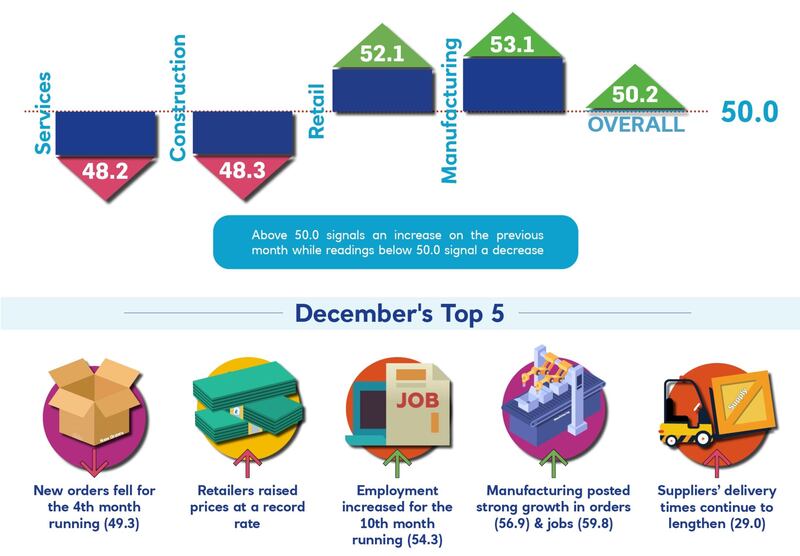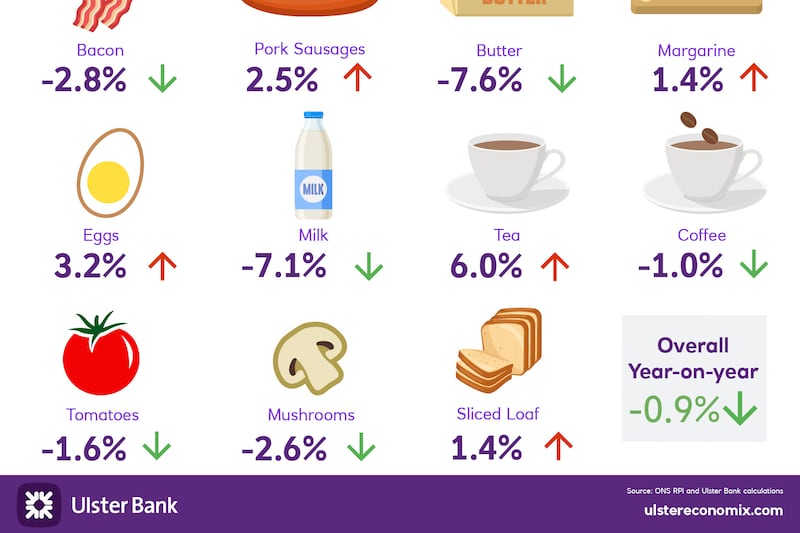THE north’s private sector almost ground to a halt during December as the onset of the Omicron variant slowed output to a nine-month low, a new business survey shows.
The latest purchasing managers index (PMI) from Ulster Bank indicates that activity in the north’s services sector contracted last month for the first time since March 2021, as the spread of the new Covid-19 variant severely impacted the hospitality sector.
Hospitality Ulster had warned the sector was set to lose out on between £250 million and £300m in trade over the festive period due to the surge.
Meanwhile, material shortages and inflationary pressure continued to hit the construction sector in December.
Manufacturing remained the strongest performer, while the busy Christmas period and the tail-end of the Spend Local scheme contributed to higher activity in the retail sector.
Overall, the mixed performance resulted in only a fractional growth of business activity, which was the weakest rate of expansion for the 11 UK regions which posted growth lain December.
But the monthly survey, which reflects the experience of 200 private sector firms from around the north, showed consumer confidence in decline during December.
New orders from overseas also decreased at the fastest pace since May 2021, with the surge in Omicron also harming client confidence.

Ulster Bank’s chief economist, Richard Ramsey, said the short-term picture looks bleak for many businesses.
“No rapid improvement is anticipated any time soon with new orders declining for the fourth month running and export orders contracting sharply, extending the current sequence of decline to 35 months.
“Inflationary pressures remain severe, while suppliers’ delivery times continue to lengthen sharply.”
One bright spot in the economy remains the labour market. Ulster Bank’s PMI showed local firms notched-up their 10th successive month of employment growth with all four sectors increasing their headcount.
“All sectors bar construction also anticipate strong rises in output by the end of the year,” said Mr Ramsey.
“Retail, perhaps somewhat surprisingly given the cost-of-living pressures, is its most optimistic since March 2018.
“But with retailers increasing their prices at a record rate, it remains to be seen whether consumers will share that optimism.”
Looking ahead, the economist said he expects three economic themes, which were prevealent at the end of 2011, will dominate 2022: Slower growth, severe inflationary pressure, and the stop-start disruption associated with Covid.
“This might ease in the second half of the year, however, don’t forget Brexit,” added Mr Ramsey,
“Whilst we should be over the hump of the pandemic by mid-2022, the same can’t be said for Brexit as some of the current grace periods come to an end in July.”







